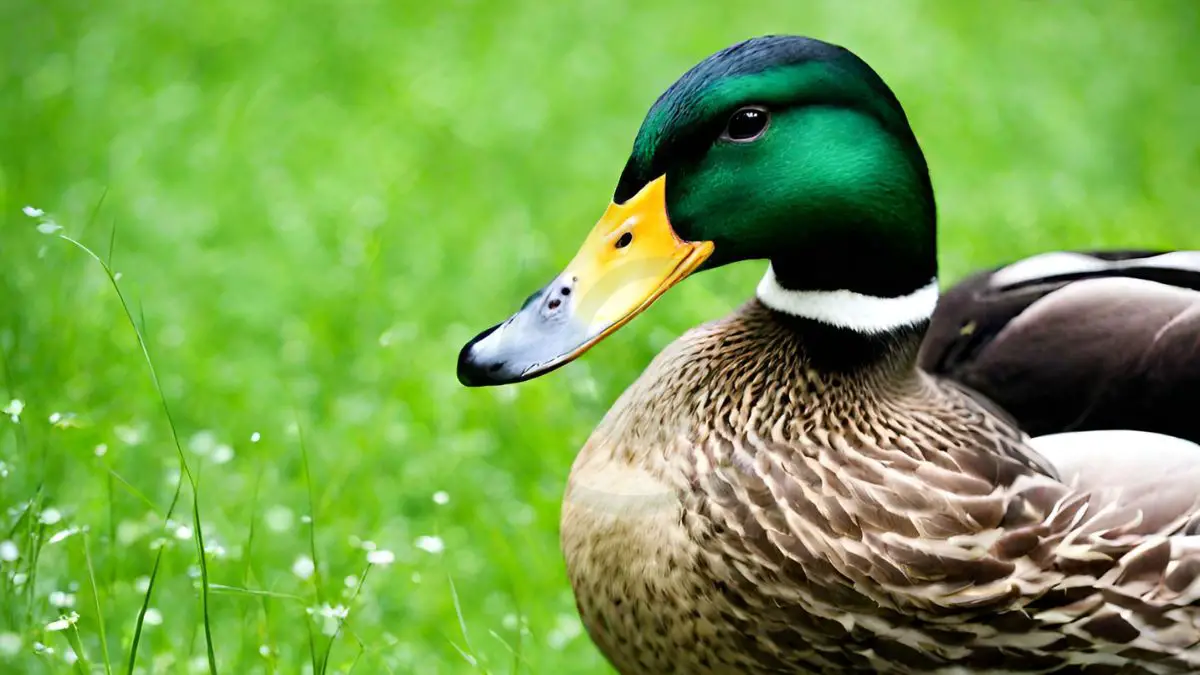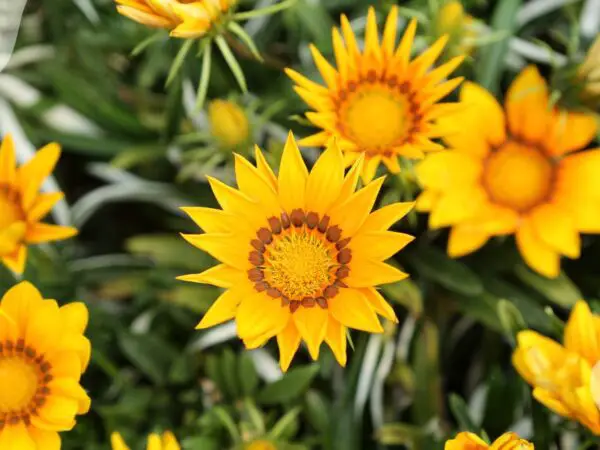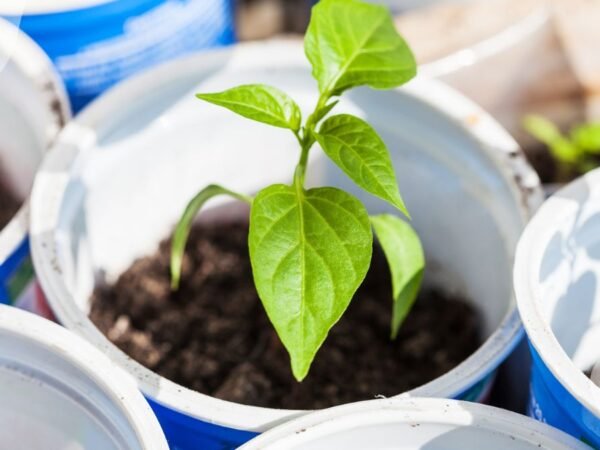Can ducks eat grass? Absolutely! Ducks can indeed eat grass as part of their diet. However, it's crucial to understand the importance of moderation and variety, care in their nutrition.
Ducks are omnivorous birds and can consume a wide range of foods, including grass, insects, small fish, and aquatic plants. While grass, weeds, bugs can be a nutritious addition to their diet, chickens it should not be the sole source of their nutrition. Ducks require a balanced diet to maintain optimal health, including commercial duck feed or a mixture of grains, vegetables, and protein sources.
In addition to grass, ducks also benefit from access to clean water for drinking and swimming, as well as suitable shelter and space to roam. Providing a diverse diet and proper care ensures the well-being of ducks in captivity or in the wild.
Key Takeaways
- Feeding Ducks Grass: Ducks can eat grass as part of their diet, providing essential nutrients and aiding in digestion.
- Benefits of Grass: Grass offers vitamins, minerals, and fiber that contribute to the overall health and well-being of ducks.
- Potential Risks: While grass is generally safe for ducks, be cautious of pesticides, fertilizers, or toxic plants that can harm them.
- Feeding Guidelines: Introduce grass gradually into a duck's diet to prevent digestive issues and monitor their intake.
- Safe Grass Types: Opt for organic, untreated grass to ensure the safety of ducks when feeding them this natural food.
- Observing Duck Behavior: Watch how ducks interact with grass to understand their preferences and adjust their diet accordingly.
Understanding Ducks
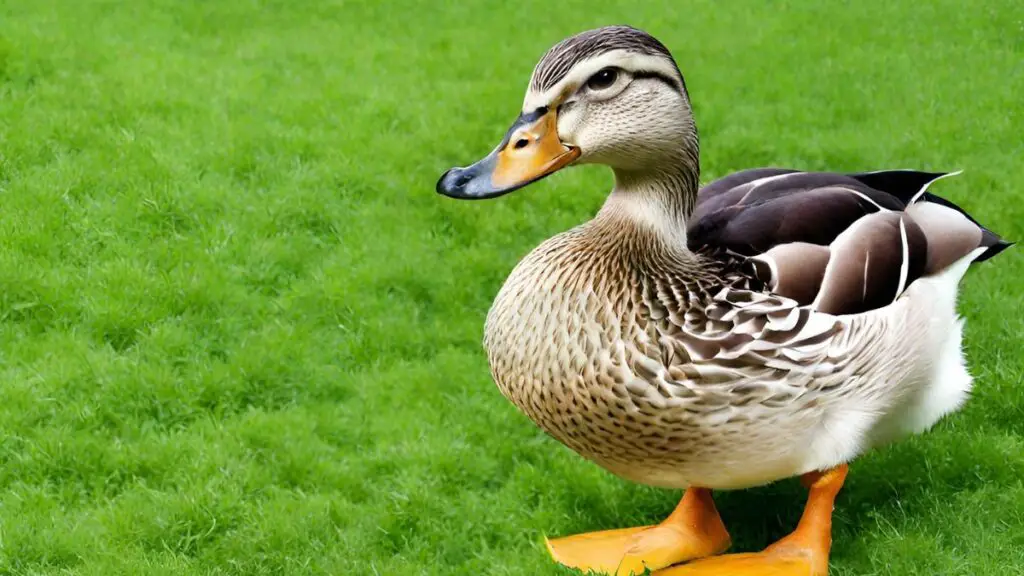
Diet basics
Ducks need a balanced diet to stay healthy and thrive. A healthy duck diet should consist of grains, vegetables, and proteins. Incorporating grass into a duck's diet is crucial as it provides essential fiber and nutrients.
Natural habitat
Ducks thrive in wetlands, ponds, and lakes, where they can swim and forage for food. They interact with their environment by filtering water for food and building nests. Mimicking a natural habitat for ducks in captivity helps reduce stress and promotes natural behaviors.
Physical characteristics
Ducks are characterized by their webbed feet, which aid in swimming efficiently. Their waterproof feathers keep them dry while diving for food. These features enable ducks to navigate water bodies with ease and escape predators effectively.
Digestive system
The digestive process of ducks involves grinding food in the gizzard to aid digestion. Ducks extract nutrients from food through their well-developed intestines. To maintain a healthy digestive system, ducks require access to clean water for drinking and bathing.
Grass as Food
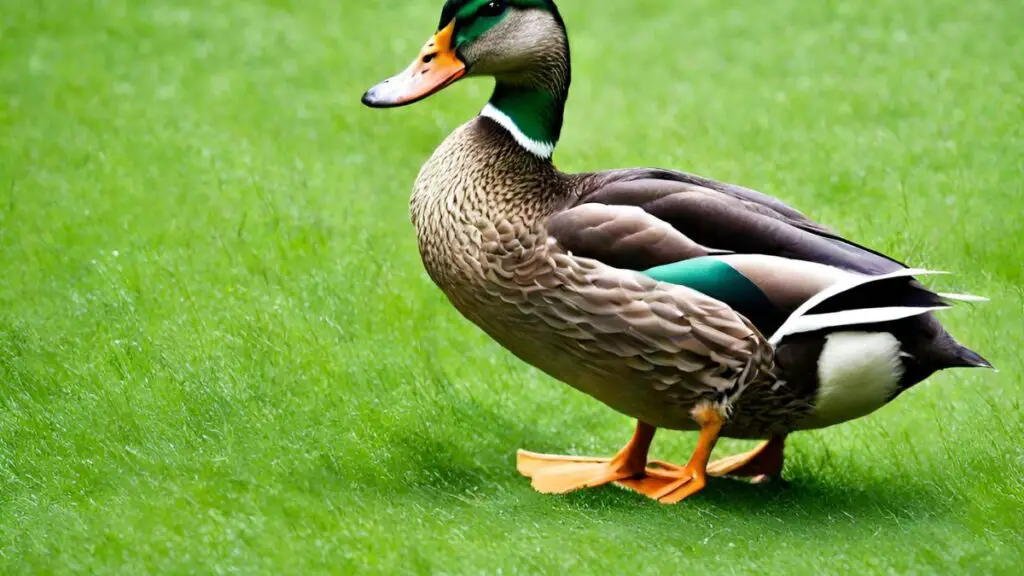
Nutritional value
Ducks benefit from grass as it provides essential vitamins and minerals crucial for their health. Grass contributes to a well-rounded duck diet by offering fiber, aiding in digestion, and supporting overall gut health. The natural nutrients in grass help maintain optimal body functions for ducks.
Different types of grass offer varying nutritional content, with some being richer in specific vitamins or minerals than others. Ducks can obtain Vitamin A, Vitamin K, and essential minerals like calcium and iron from consuming various grass species. Including a variety of grass types ensures ducks receive a diverse range of nutrients.
Types of grass
Various types of grass are suitable for ducks, including ryegrass, bermudagrass, and fescue. Each type offers unique nutritional benefits, with some being higher in protein while others provide more fiber. Selecting the best grass for feeding ducks depends on their specific dietary needs and preferences.
When choosing grass for ducks, consider factors such as the texture, taste, and nutritional composition of the grass species. Opt for fresh, green grasses that are free from pesticides or chemicals to ensure the ducks' safety and health. Providing a mix of grass varieties can enhance the nutritional diversity in their diet.
Eating habits
Ducks exhibit omnivorous eating behavior, consuming a wide range of foods including insects, aquatic plants, and grains. When foraging for food, ducks actively seek out fresh greens like grass to supplement their diet. Their peculiar eating habits may include dabbling in water to find submerged vegetation or grazing on land for tender shoots.
Ducks have a unique feeding style where they use their bills to filter food from water or peck at vegetation on land. They often graze throughout the day, nibbling on small amounts of food intermittently. This behavior helps them maintain energy levels and meet their nutritional requirements effectively.
Benefits of Grass
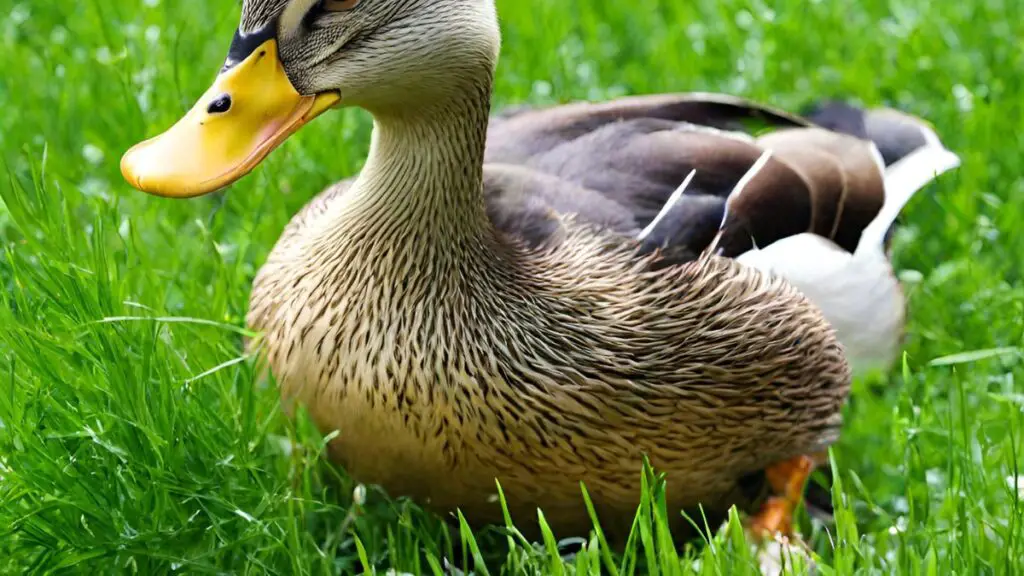
Health benefits
Grass consumption provides essential nutrients for ducks, promoting their overall health and well-being. The natural fibers in grass aid in digestive health by regulating the gut flora of ducks. vitamins and minerals found in grass contribute to boosting the immune system of ducks.
Including grass in a duck's diet can lead to improved feather quality due to the presence of essential nutrients like beta-carotene. Ducks that consume grass tend to have shinier feathers and healthier skin compared to those on a diet lacking greens. Moreover, the act of foraging for grass can provide mental stimulation for ducks, reducing stress levels.
Growth impact
Grass consumption plays a crucial role in the growth and development of ducks by providing them with additional protein and fiber essential for healthy growth. Ducks that eat grass tend to exhibit better weight gain compared to those on a solely commercial feed diet. The fiber content in grass aids in proper digestion, preventing issues like bloating or digestive discomfort in ducks.
Moreover, including grass in a duck's diet can lead to enhanced muscle development due to the additional protein intake from consuming greens. This can result in stronger and more robust ducks that are better equipped to withstand environmental stressors. Overall, incorporating grass into a duck's diet can have significant growth-related benefits that contribute to their overall well-being.
Potential Risks
Toxic plants
Ducks should avoid common toxic plants such as foxglove, nightshade, and hemlock to prevent poisoning. Consuming these plants can lead to serious health issues for ducks, including organ damage and even death. To prevent ingestion, ensure ducks have access to a diverse diet and regularly check their grazing areas for harmful vegetation.
Overgrazing issues
Overgrazing by ducks can result in depleted grasslands, leading to soil erosion and loss of biodiversity. This practice can disrupt the ecosystem balance by altering plant composition and reducing food sources for other wildlife. To prevent overgrazing, rotate duck grazing areas regularly, provide supplemental feed, and monitor grass growth to maintain a healthy environment.
Feeding Guidelines
Proper portions
Ducks should be fed appropriate portions of grass to maintain their health and well-being. Overfeeding can lead to obesity and digestive issues in ducks. To determine the right amount of grass, consider the size and age of the duck.
It's crucial to control portions to ensure a balanced diet for ducks. A good rule of thumb is to provide grass as part of a varied diet that includes other foods like grains and vegetables. This helps meet their nutritional needs while preventing overeating.
Frequency
The frequency at which ducks should be fed grass depends on various factors such as their activity level and overall diet. Ducks can typically be fed grass once or twice a day, ensuring they have access to fresh water at all times.
Establishing an ideal feeding schedule for ducks involves consistency. Regular feeding intervals help ducks anticipate meal times, promoting healthy eating habits. Ducks thrive on routine, so maintaining a consistent feeding schedule is essential for their well-being.
Supplemental foods
In addition to grass, ducks can benefit from supplemental foods that add variety and nutrients to their diet. Foods like cracked corn, peas, and mealworms can complement a duck's grass intake. These foods provide essential vitamins and minerals that contribute to overall duck health.
Incorporating variety into a duck's diet not only keeps them interested in their meals but also ensures they receive a diverse range of nutrients. By offering different supplemental foods alongside grass, you can enhance the nutritional value of their diet.
- Nutritious supplemental foods for ducks:
- Cracked corn
- Peas
- Mealworms
Safe Grass Types
Recommended species
Ducks, especially mallards and muscovies, enjoy consuming grass as part of their diet. These species exhibit a natural inclination towards grazing on various types of grasses. Pekin ducks also benefit from a diet rich in grass, aiding in their digestion and overall health.
e duck species, such as the Indian runner ducks, are particularly fond of foraging on grassy areas. They actively seek out fresh greens to supplement their diet. Providing these ducks with access to safe grass varieties can enhance their nutritional intake and behavioral enrichment.
- Mallards
- Muscovies
- Pekin ducks
Unsafe varieties
Certain grass varieties, like ryegrass and fescue, can be harmful to ducks if ingested in large quantities. These species contain compounds that may lead to digestive issues or toxicity in ducks. It is crucial to avoid feeding ducks grasses that are treated with pesticides or herbicides.
Ducks should steer clear of consuming toxic plants like foxglove or hemlock, commonly found among various grasses. These plants pose serious health risks to ducks and must be kept away from their feeding areas. Ensuring that the grass provided to ducks is free from toxic elements is essential for their well-being.
- Ryegrass
- Fescue
- Toxic plants: Foxglove, Hemlock
Preparing Grass for Ducks
Cleaning Process
Ducks require clean feeding areas to stay healthy and thrive. Maintaining hygiene in their feeding spaces is crucial. Remove any uneaten grass promptly to prevent contamination and ensure freshness. Regularly cleaning the feeding areas can prevent the growth of harmful bacteria and keep ducks healthy.
To clean up after feeding, remove any leftover grass to avoid spoilage and potential health risks for ducks. Clearing out uneaten grass also prevents attracting pests like rodents or insects. Ensure that the feeding area is free from debris and contaminants to promote a safe environment for ducks.
For optimal hygiene, clean the feeding area regularly by disposing of old grass properly. Consider using a rake or shovel to gather uneaten grass efficiently. By maintaining cleanliness in the feeding areas, you create a safe space for ducks to eat without the risk of ingesting harmful substances.
Cutting Techniques
When cutting grass for ducks, it's essential to follow best practices to ensure their well-being. The cutting technique directly impacts the quality of grass for ducks' consumption. Cut the grass into manageable pieces that are easy for ducks to eat without causing choking hazards.
The cutting technique affects the texture and digestibility of the grass for ducks. Ensure that the grass is cut into small, bite-sized portions to facilitate easy consumption. Avoid leaving long strands of grass, as they may be challenging for ducks to ingest comfortably.
To guarantee that the grass is suitable for duck consumption, cut it to an appropriate length. Aim for shorter lengths that are easily digestible and don't pose a risk of entanglement in ducks' throats. By cutting the grass correctly, you provide ducks with nutritious feed while minimizing potential health issues related to improper cutting techniques.
Alternatives to Grass
Vegetable options
Ducks can benefit from a variety of vegetables in their diet, providing essential nutrients and supplementing their grass intake. Vegetables like lettuce, peas, and cucumbers are safe choices for ducks. These veggies offer vitamins, minerals, and fiber that contribute to a balanced diet for ducks.
Including vegetables in a duck's diet can enhance their overall health and well-being. Leafy greens such as spinach and kale are rich in antioxidants that support the immune system of ducks. Carrots and sweet potatoes are excellent sources of vitamin A, crucial for maintaining good eyesight in ducks.
- Safe vegetable options for ducks:
- Lettuce
- Peas
- Cucumbers
- Spinach
- Kale
- Carrots
- Sweet potatoes
Commercial feeds
Commercial feeds play a vital role in ensuring ducks receive all the necessary nutrients they need. These feeds are formulated to provide a balanced diet that complements the natural diet of ducks. By offering commercial feeds, duck owners can ensure their pets have access to essential vitamins, minerals, and proteins.
Supplementing grass consumption with high-quality commercial feeds is essential for meeting the nutritional requirements of ducks. Opting for feeds specifically designed for waterfowl ensures that ducks receive the right balance of nutrients. Look for reputable brands that prioritize quality ingredients and adhere to strict manufacturing standards.
- Benefits of commercial feeds:
- Balanced nutrition
- Essential vitamins and minerals
- Protein-rich formulations
Observing Duck Behavior
Signs of satisfaction
Ducks show contentment with their diet through various signs, including eagerly consuming grass as part of their natural foraging behavior. They may exhibit relaxed body language, such as preening and sunbathing, indicating satisfaction. Observing a duck actively feeding on grass can be a clear sign of dietary contentment.
Key health indicators in ducks include bright eyes, clean feathers, and energetic behavior, all influenced by their diet. Grass consumption contributes to a duck's overall health by providing essential nutrients and aiding digestion. A duck with a balanced diet, including grass, will display vibrant plumage and active foraging behavior.
Health indicators
Monitoring a duck's health involves observing its weight, activity levels, and the quality of its feathers. Grass intake plays a crucial role in maintaining a duck's digestive health and overall well-being. Ducks that consume grass regularly tend to have healthy digestive systems and exhibit normal excretion patterns.
- Signs of good health in ducks include regular preening, vigorous swimming, and engaging in social interactions.
- A well-balanced diet, which includes grass, supports a duck's immune system and helps prevent illnesses.
- Ducks that are healthy due to proper nutrition, including grass consumption, will display strong wingbeats during flight.
Final Remarks
In conclusion, understanding what ducks can eat, particularly grass, is crucial for their well-being. Grass offers numerous benefits, from providing essential nutrients to promoting natural behaviors. However, it's equally important to be aware of potential risks associated with certain grass types and ensure proper preparation before feeding your ducks. By observing their behavior and adjusting their diet accordingly, you can ensure a balanced and healthy diet for your feathered friends.
Remember to consult with a veterinarian or avian expert if you have any concerns about your ducks' diet. Your diligence in providing them with safe and suitable food will contribute to their overall health and happiness. Stay informed and attentive to your ducks' dietary needs to create a thriving environment for them.
Frequently Asked Questions
Can ducks survive on a diet of grass alone?
Ducks cannot survive on grass alone as they require a balanced diet. While grass can be part of their diet, it should be supplemented with other nutrients like grains and proteins to ensure their health and well-being.
Is it safe for ducks to eat all types of grass?
Not all types of grass are safe for ducks to consume. Some grass varieties may be toxic or harmful to them. It is essential to identify safe grass types that are free from pesticides or chemicals before feeding them to your ducks.
How should I prepare grass for feeding ducks?
Before offering grass to ducks, ensure it is clean and free from any contaminants. Wash the grass thoroughly to remove dirt, pesticides, or other harmful substances. Chop the grass into small pieces to make it easier for the ducks to eat and digest.
Are there alternatives to feeding ducks with grass?
Yes, there are alternative foods you can offer ducks besides grass. Some suitable options include duck feed pellets, grains like corn or wheat, vegetables such as lettuce or peas, and fruits like berries or watermelon. Ensure a balanced diet for optimal duck health.
What behaviors should I observe when feeding ducks with grass?
When feeding ducks with grass, observe their eating habits and reactions. Look for signs of enjoyment such as active grazing, wagging tails, and content quacks. Monitor any unusual behavior or signs of discomfort that may indicate digestive issues from consuming the grass.
Image Source: Paid image from CANVA

